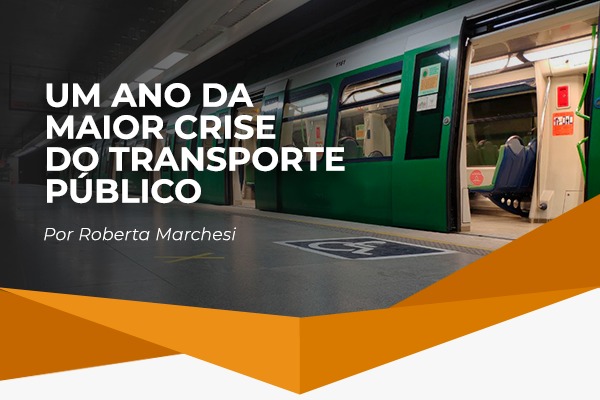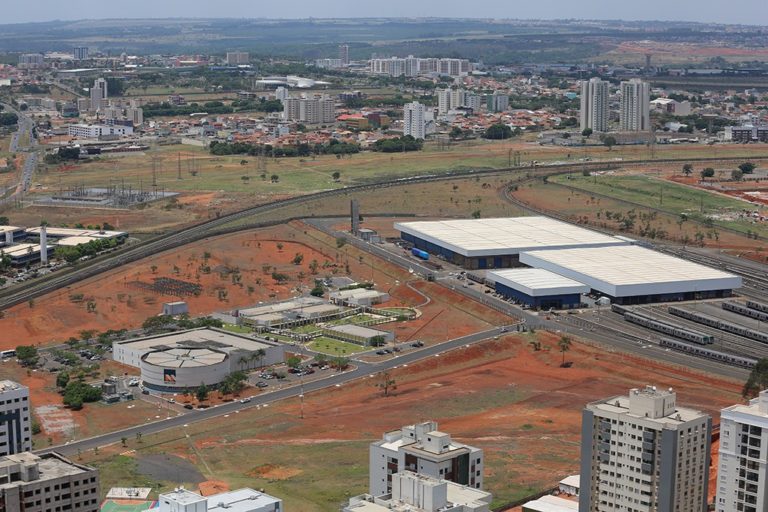By Roberta Marchesi*
Regardless of political/parties issues, since January, 1st Brazil has a new government and all Brazilians are together in the search for the country’s development. One of the most delicate areas to millions of Brazilians is mobility. It has a direct impact on the quality of life of the population and it is essential for citizens, in their daily lives, to access all their social rights, such as education, health, security and justice.
Since urban mobility is such a delicate area for the development of cities and the country, what can over 208 million Brazilians expect for this sector in the new government?
In its Government Program, President Jair Bolsonaro acknowledges the gap of the Brazilian rail network and advocates its integration to stimulate transportation and boost infrastructure. Aware of the transportation investment deficit in Brazil and flanked by a team trained to defend national strategic sectors, it is expected that the structural projects, here also considered those of the area of mobility on rails, have a leading role in their government.
Based on a program where the economy takes a liberal bias, in which the concessions and privatization processes promise to boost the development of the national infrastructure, it is expected that the new government will also take this path to stimulate the investment in the transport area of passengers on rails. Following a trend in this sector, where the private sector has already responded positively to investment in recent years, one should expect to increase the pace of concession processes, which, if implemented, will greatly contribute to the qualification of public transport in the country.
However, in order for Public-Private Partnerships (PPP) processes to take place, it is necessary for the Federal Government, States and Municipalities to guarantee their share of investment in the projects. And this will be a great challenge to the new government, especially at this moment, where the main Brazilian states are in debt and are experiencing serious difficulties in obtaining financing for the execution of infrastructure works. In this way, the alternative that can be picture is the strengthening of the concept of integral PPPs, such as the one that was made for the resumption of the Bahia subway system, which is the largest Brazilian case of success, both in terms of the implementation of the mobility project rails, and performance in public management.
In order to ensure greater attractiveness to the private investor by making it willing to take full risk for the development of rail mobility projects and to leverage the national infrastructure area, the new government will have a major challenge ahead, which is to seek legal certainty of contracts, a determining condition for the expansion of private investments. In this sense, establishing strong Regulatory Frameworks, working to comply with contractual arrangements, establishing robust contractual guarantees and professionalizing Regulatory Agencies may contribute to the pace of investment that Brazil needs.
An important topic that has been released by the new President’s team and the market is carefully monitored is that resources previously managed by the Ministry of Cities, responsible for, among others, the area of urban mobility, will be passed directly to the States. We believe that this proposal for the decentralization of federal resources may contribute to the strengthening of states and their autonomy in the implementation of projects. However, it also has some concerns, essentially related to long-term planning and guaranteeing the execution of structuring projects that generate effective benefits for cities and their inhabitants.
The lack of long-term planning in Brazil is old news for Brazilians, and its absence as a guiding instrument for investments, especially structuring ones, has led cities to experience a real crisis in several sectors, which is not different with the area of mobility. Endless traffic jams, a high number of serious and fatal accidents, high air pollution and noise levels degrade the quality of life and subject the citizen to a daily routine of more than 2 hours lost in transit every day.
Investments in structuring rail transport, which will give speed, predictability and quality to the public transportation of cities and between them, combined with their physical and tariff integration with other feeder systems, are the only way to dignify the transportation of millions of Brazilians. However, these investments should not be purely political, but State projects, treated at a strategic level and guaranteed by the Federation. In this sense, the incorporation of the Ministry of Cities and the lack of definition about its attribution worries the experts of the area since the resources will be passed directly to the States, being held hostage to political projects rather than State projets.
Although there is still a great deal of uncertainty about the new government’s plans for the mobility area, notably about structuring rail-based transport, there is a prospect of strengthening private investment in the entire infrastructure sector. Which might make states which already have projects, with proven feasibility and attractiveness get ahead and, in the short time, can provide their cities with new mobility infrastructures, generating priceless benefits for the lives of its inhabitants.
ANPTrilhos monitors the movements of the government transition regarding the definitions for the Mobility area and makes itself available to present and detail the proposals for the advancement of mobility on rails. We hope that the team of this new government will have an innovative look at the country’s mobility area, with courage to face old problems, rescuing more than 60 years of public policies that prioritized individual transportation over collective transportation, leaving an important legacy of development of mobility, rail transport networks and cities for future generations.
* Roberta Marchesi is Executive Director of the National Association of Passenger Rail Operators (ANPTrilhos), Master in Economics and Postgraduate in Planning, Budget and Logistics.




